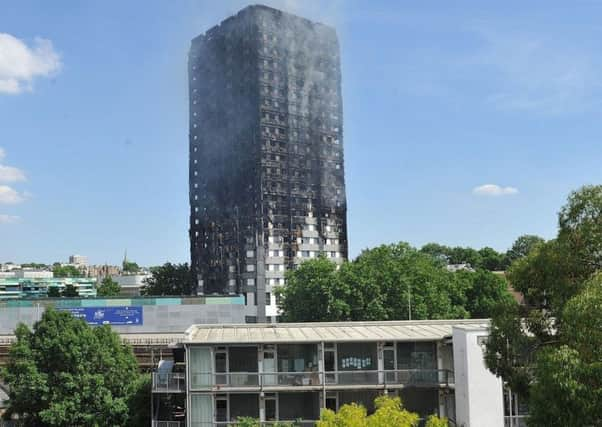Clive Betts: Fire regulations must be looked at as an emergency


As I write, the media is reporting that the newly-elected leader of Kensington and Chelsea Council is being heckled and facing calls for her resignation as she pledges to rebuild trust “brick by brick”.
The previous leader, the deputy leader and the chief executive have all resigned, yet it was not too long ago that Kensington and Chelsea Council was being lauded as a flagship local authority by the then Secretary of State for Communities and Local Government when appointing the previous chief executive, one of the commissioners now running Rotherham Metropolitan Borough Council.
Advertisement
Hide AdAdvertisement
Hide AdFailings on the part of a single local authority should not, however, be used to undermine confidence in local government as a whole. Little media coverage was devoted to the incredibly efficient, effective and sensitive response less than two months ago to the Manchester bomb attack of the local authority in partnership with the NHS and the emergency services.
That said, it is necessary that we get to the bottom of how the Grenfell Tower fire happened, hold anyone responsible for the scale of the disaster to account and take steps to try to ensure nothing like this happens again. There are lessons in this not only for Kensington and London, given that there are some 4,000 residential tower blocks in England and Wales. Many of them are in Yorkshire, most of which are owned by social landlords (although many have occupants who are Right to Buy leaseholders) and there are many tower blocks, often very new buildings, in private ownership and many buildings (schools, hospitals and offices) with cladding.
A public inquiry has been commissioned and a judge appointed to chair it, but the remit of the inquiry has been criticised for being too narrow and concerns have been raised about the length of time it will take to publish even interim findings.
Membership of the new CLG Select Committee will not be confirmed until September and it is the members who will decide the committee’s agenda. I do, nonetheless, think it almost certain that the committee will consider the wider implications of the Grenfell Tower fire. It would not duplicate work being done by the public inquiry, but it could investigate the wider issues of the effectiveness of fire regulations, just as it has previously investigated gas and electrical regulations. There are also important emergency planning and response issues which the committee may wish to look at and housing finance is certainly now something that has to be reviewed.
Advertisement
Hide AdAdvertisement
Hide AdI would argue that the first thing central government needs to do is to establish an emergency fund to pay for essential fire prevention works. In 2010, funding for social housing was cut by 60 per cent and there is nothing in the current spending round for new social housing, decent homes work or social housing remedial work. The Government is expecting local authorities to fund essential fire safety work from their housing revenue accounts, which are funded through rent revenues. These revenues are capped, the Government having decided in the 2015 Budget that council rents would be cut by one per cent per year. Local authority borrowing is also capped by central government and unless the Government agrees to fund essential fire prevention works many councils will have to cut necessary maintenance work on other homes to pay for it.
There is also a clear need for building regulations that include effective fire prevention measures. The current regulations have not been reviewed for many years and there are some real enforcement difficulties.
Since 2010, however, getting ministers to agree new regulations has been like drawing teeth. When, in 2013, the then-Minister was questioned very strongly about the need for mandatory retrofitting of sprinklers in tower blocks he rejected the proposal, stating that a new regulation could not be introduced unless two existing ones were taken off the statute book.
What nonsense! Regulations are either necessary or they are not, particularly where public safety is concerned. New, clear, strong fire safety regulation is required which addresses not only material specifications, but also the management of contracts and which takes account of the unseen consequences of later maintenance and improvement work.
Advertisement
Hide AdAdvertisement
Hide AdThe Grenfell public inquiry will no doubt be a lengthy one, but improved fire regulations can be introduced quickly; something that the Government should treat as an absolute priority.
Sheffield South-East MP Clive Betts has just been re-elected as the chair of the all-party Communities and Local Government Select Committee (CLG).